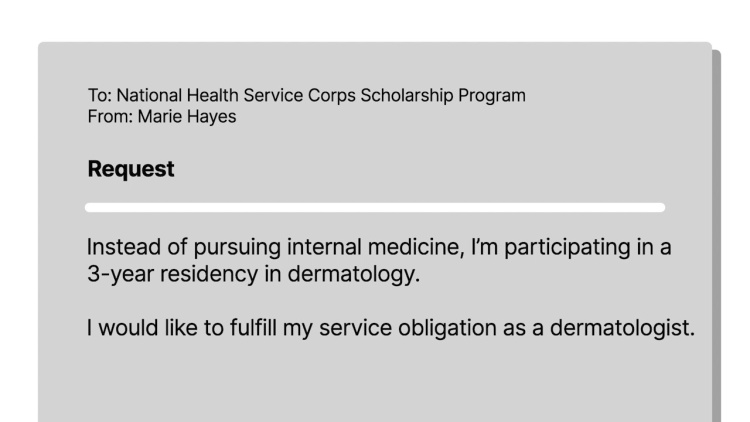United States v. Hayes
United States District Court for the Middle District of North Carolina
633 F.Supp. 1183 (1986)
- Written by Lauren Petersen, JD
Facts
Marie Hayes (defendant) applied for and received a two-year scholarship to medical school through the National Health Service Corps (NHSC). As part of her application, Hayes stated that she intended to specialize in family medicine and work in a rural area. Congress created the NHSC’s scholarship program in order to provide medical care in parts of the country without adequate medical services. The statute governing the program, 42 U.S.C. § 2541, permitted the government to seek treble damages in the event a participant failed to perform her service commitment. In exchange for her two-year scholarship, the terms of the scholarship required Hayes to serve in the NHSC for two years after completing her medical education. During her residency, Hayes decided to switch her specialty to dermatology. Hayes requested that she be permitted to serve in the NHSC as a dermatologist, but the NHSC denied her request. Rather than perform her required service in the NHSC, Hayes became a dermatologist in Chapel Hill, North Carolina. The United States government (plaintiff) sued Hayes for breach of contract, then moved for summary judgment. Hayes claimed that the treble-damages provision of 42 U.S.C. § 2541 was unenforceable. She argued that the enforceability of the liquidated-damages clause created a genuine issue of material fact, making summary judgment inappropriate.
Rule of Law
Issue
Holding and Reasoning (Erwin, J.)
What to do next…
Here's why 905,000 law students have relied on our case briefs:
- Written by law professors and practitioners, not other law students. 47,100 briefs, keyed to 995 casebooks. Top-notch customer support.
- The right amount of information, includes the facts, issues, rule of law, holding and reasoning, and any concurrences and dissents.
- Access in your classes, works on your mobile and tablet. Massive library of related video lessons and high quality multiple-choice questions.
- Easy to use, uniform format for every case brief. Written in plain English, not in legalese. Our briefs summarize and simplify; they don’t just repeat the court’s language.





